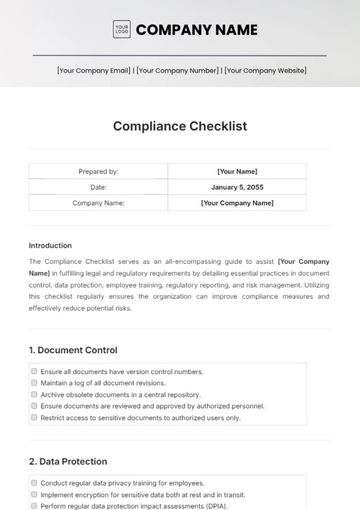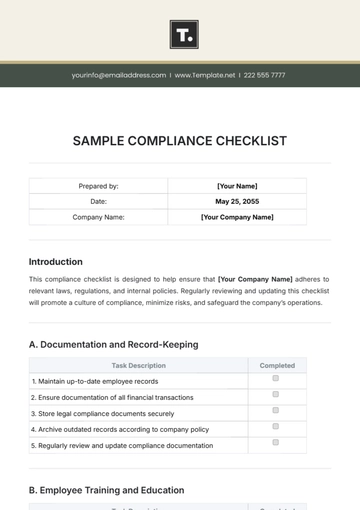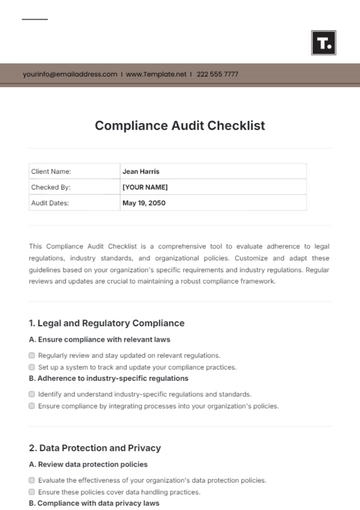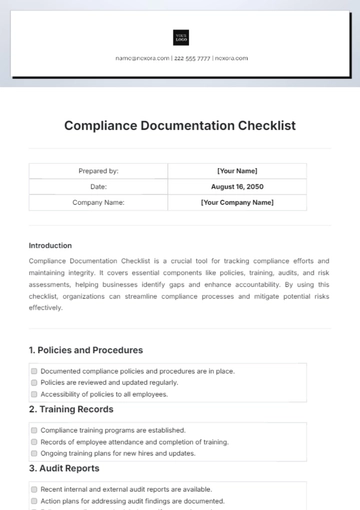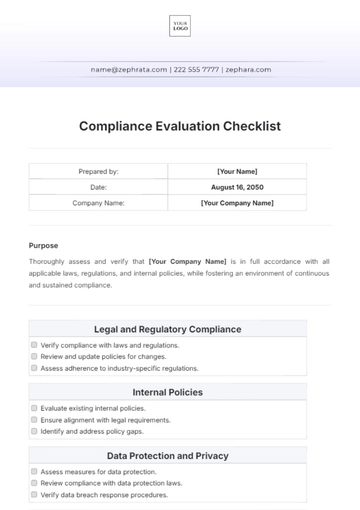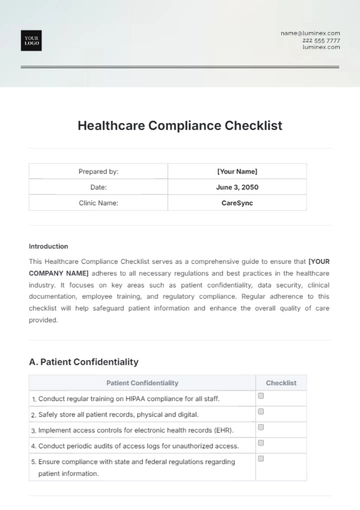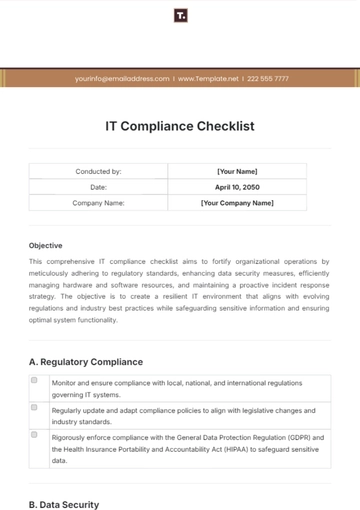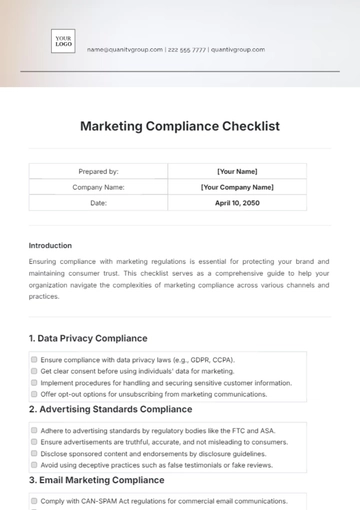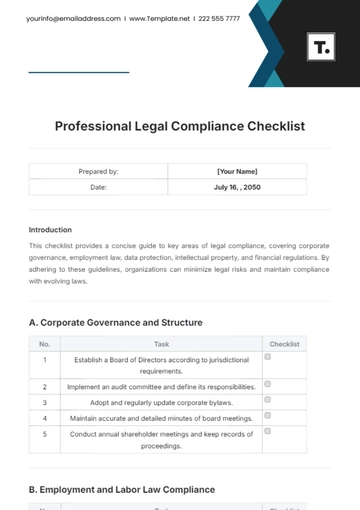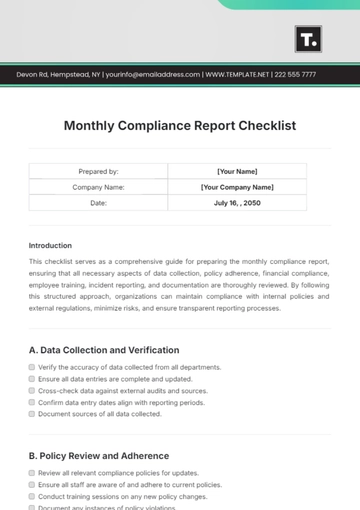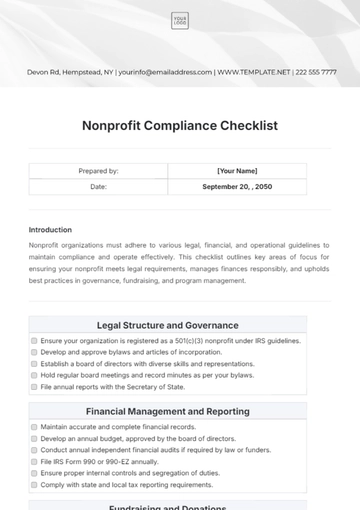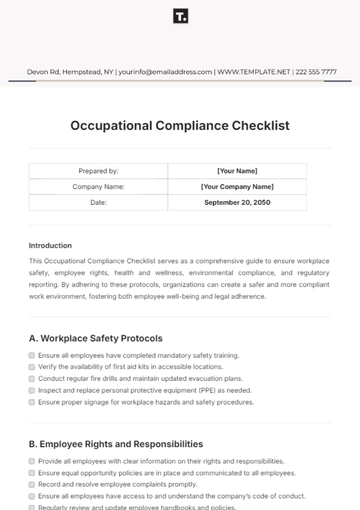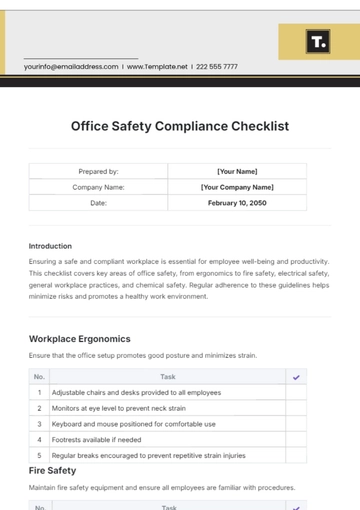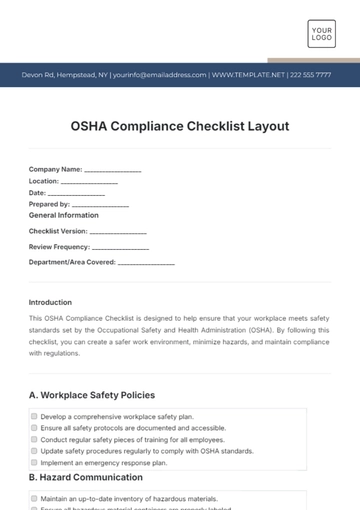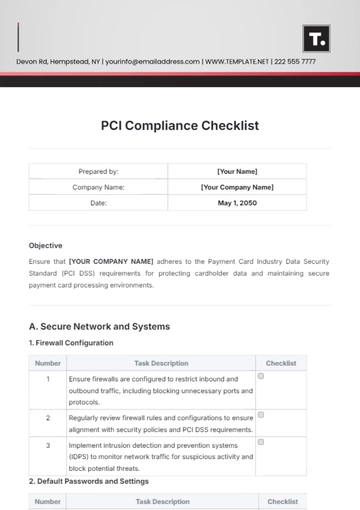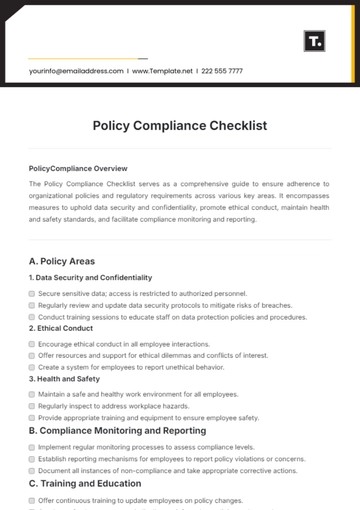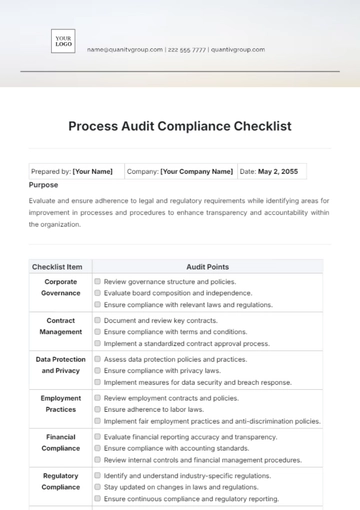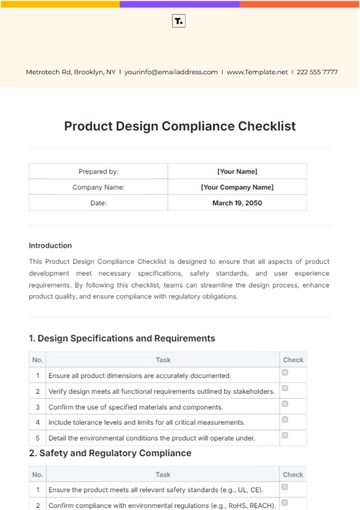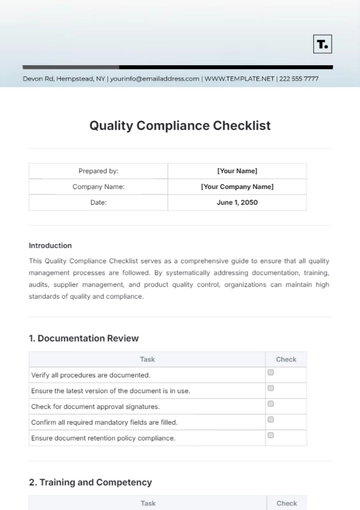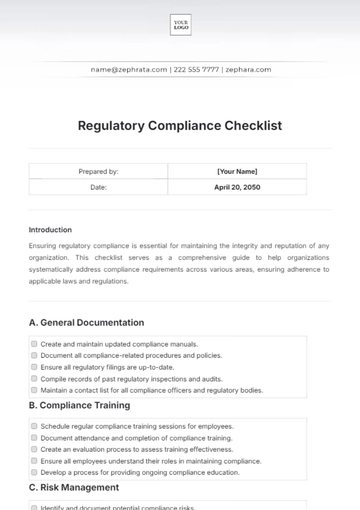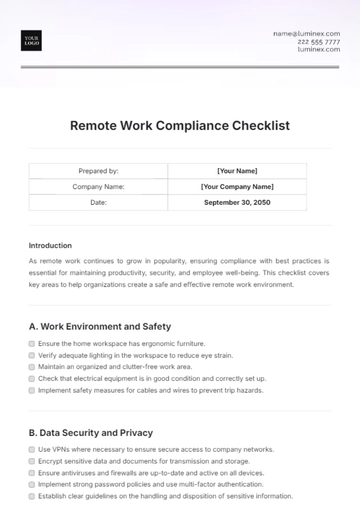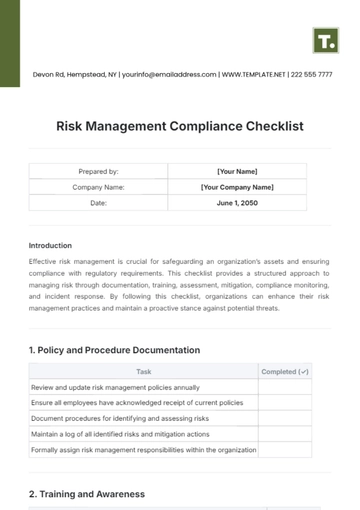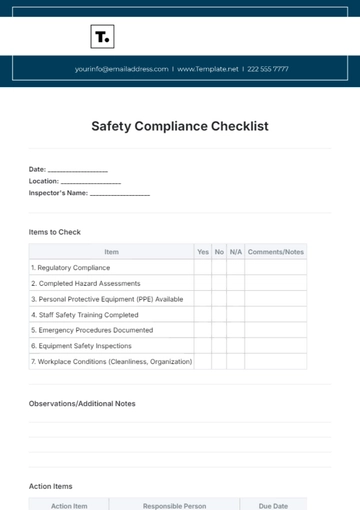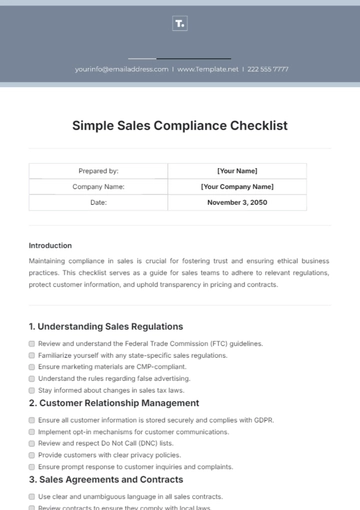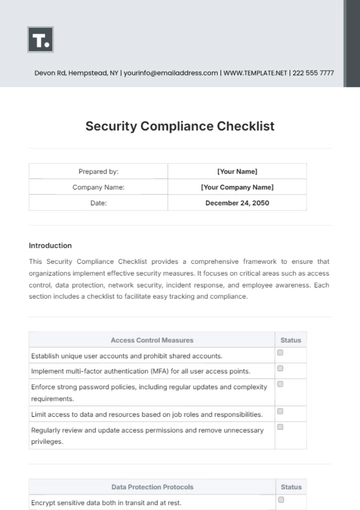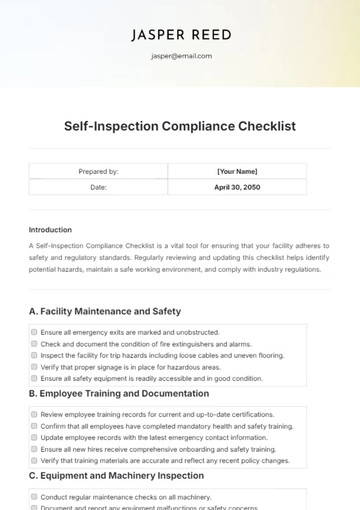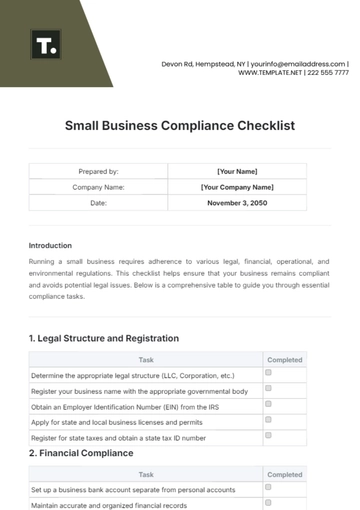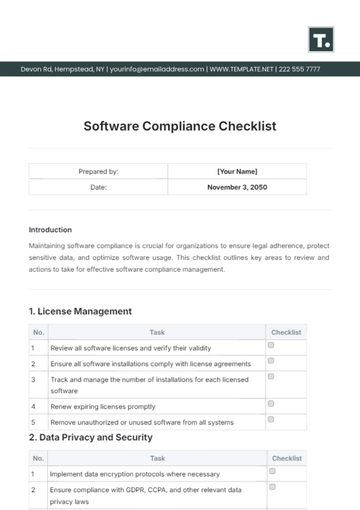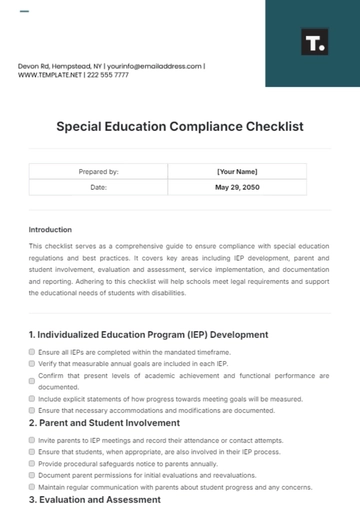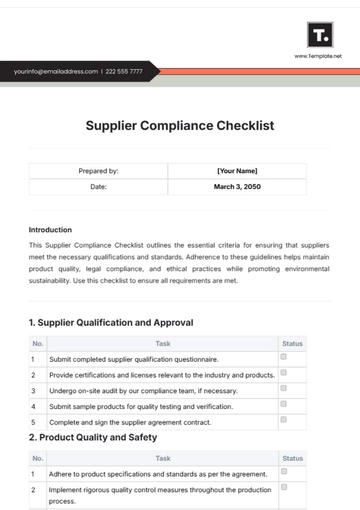Free Law Firm Safety Checklist
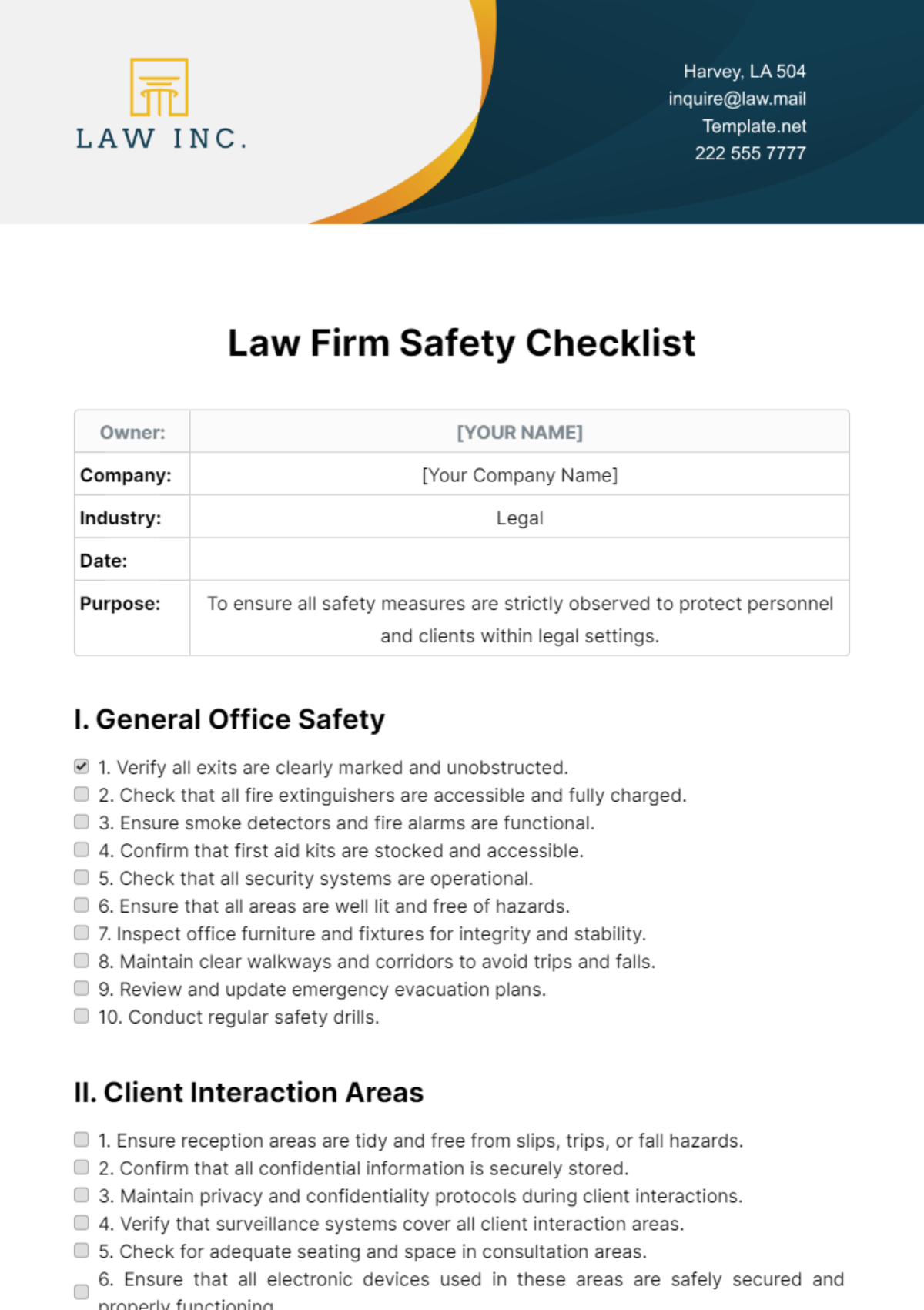
Owner: | [YOUR NAME] |
|---|---|
Company: | [Your Company Name] |
Industry: | Legal |
Date: | |
Purpose: | To ensure all safety measures are strictly observed to protect personnel and clients within legal settings. |
I. General Office Safety
1. Verify all exits are clearly marked and unobstructed.
2. Check that all fire extinguishers are accessible and fully charged.
3. Ensure smoke detectors and fire alarms are functional.
4. Confirm that first aid kits are stocked and accessible.
5. Check that all security systems are operational.
6. Ensure that all areas are well lit and free of hazards.
7. Inspect office furniture and fixtures for integrity and stability.
8. Maintain clear walkways and corridors to avoid trips and falls.
9. Review and update emergency evacuation plans.
10. Conduct regular safety drills.
II. Client Interaction Areas
1. Ensure reception areas are tidy and free from slips, trips, or fall hazards.
2. Confirm that all confidential information is securely stored.
3. Maintain privacy and confidentiality protocols during client interactions.
4. Verify that surveillance systems cover all client interaction areas.
5. Check for adequate seating and space in consultation areas.
6. Ensure that all electronic devices used in these areas are safely secured and properly functioning.
7. Regularly test communication tools used for client meetings to ensure functionality.
8. Monitor and control access to these areas to ensure only authorized personnel and clients can enter.
9. Provide clear signage regarding office policies and safety protocols.
10. Ensure all lighting and electrical outlets are checked and functioning correctly in the client meeting rooms.
III. Documentation and Records
1. Regularly update safety guidelines and procedures manuals.
2. Keep a log of all safety inspections and any issues identified.
3. Document all employee training on safety protocols.
4. Maintain records of security breaches or incidents.
5. Ensure compliance with local, state, and federal safety regulations and record-keeping requirements.
6. File and store all physical and electronic legal documents securely.
7. Regularly review and audit client information to ensure it is protected.
8. Validate data disposal processes for outdated files to prevent unauthorized access.
9. Implement a protection plan for critical records against natural disasters.
10. Monitor changes in legislation that affect record keeping and ensure compliance.
- 100% Customizable, free editor
- Access 1 Million+ Templates, photo’s & graphics
- Download or share as a template
- Click and replace photos, graphics, text, backgrounds
- Resize, crop, AI write & more
- Access advanced editor
Introducing Template.net's essential Law Firm Safety Checklist Template. Tailored for legal practices, it ensures a secure workplace environment. Utilize its flexibility—it's both editable and customizable with our AI editor tool. Safeguard your firm with confidence and ease. Trust Template.net for meticulous solutions tailored to your firm's safety protocols.
You may also like
- Cleaning Checklist
- Daily Checklist
- Travel Checklist
- Self Care Checklist
- Risk Assessment Checklist
- Onboarding Checklist
- Quality Checklist
- Compliance Checklist
- Audit Checklist
- Registry Checklist
- HR Checklist
- Restaurant Checklist
- Checklist Layout
- Creative Checklist
- Sales Checklist
- Construction Checklist
- Task Checklist
- Professional Checklist
- Hotel Checklist
- Employee Checklist
- Moving Checklist
- Marketing Checklist
- Accounting Checklist
- Camping Checklist
- Packing Checklist
- Real Estate Checklist
- Cleaning Checklist Service
- New Employee Checklist
- Food Checklist
- Home Inspection Checklist
- Advertising Checklist
- Event Checklist
- SEO Checklist
- Assessment Checklist
- Inspection Checklist
- Baby Registry Checklist
- Induction Checklist
- Employee Training Checklist
- Medical Checklist
- Safety Checklist
- Site Checklist
- Job Checklist
- Service Checklist
- Nanny Checklist
- Building Checklist
- Work Checklist
- Office Checklist
- Training Checklist
- Website Checklist
- IT and Software Checklist
- Performance Checklist
- Project Checklist
- Startup Checklist
- Education Checklist
- Home Checklist
- School Checklist
- Maintenance Checklist
- Planning Checklist
- Manager Checklist
- Wedding Checklist
- Vehicle Checklist
- Travel Agency Checklist
- Vehicle Inspection Checklist
- Interior Design Checklist
- Backpacking Checklist
- Business Checklist
- Legal Checklist
- Nursing Home Checklist
- Weekly Checklist
- Recruitment Checklist
- Salon Checklist
- Baby Checklist
- Equipment Checklist
- Trade Show Checklist
- Party Checklist
- Hospital Bag Checklist
- Evaluation Checklist
- Agency Checklist
- First Apartment Checklist
- Hiring Checklist
- Opening Checklist
- Small Business Checklist
- Rental Checklist
- College Dorm Checklist
- New Puppy Checklist
- University Checklist
- Building Maintenance Checklist
- Work From Home Checklist
- Student Checklist
- Application Checklist
